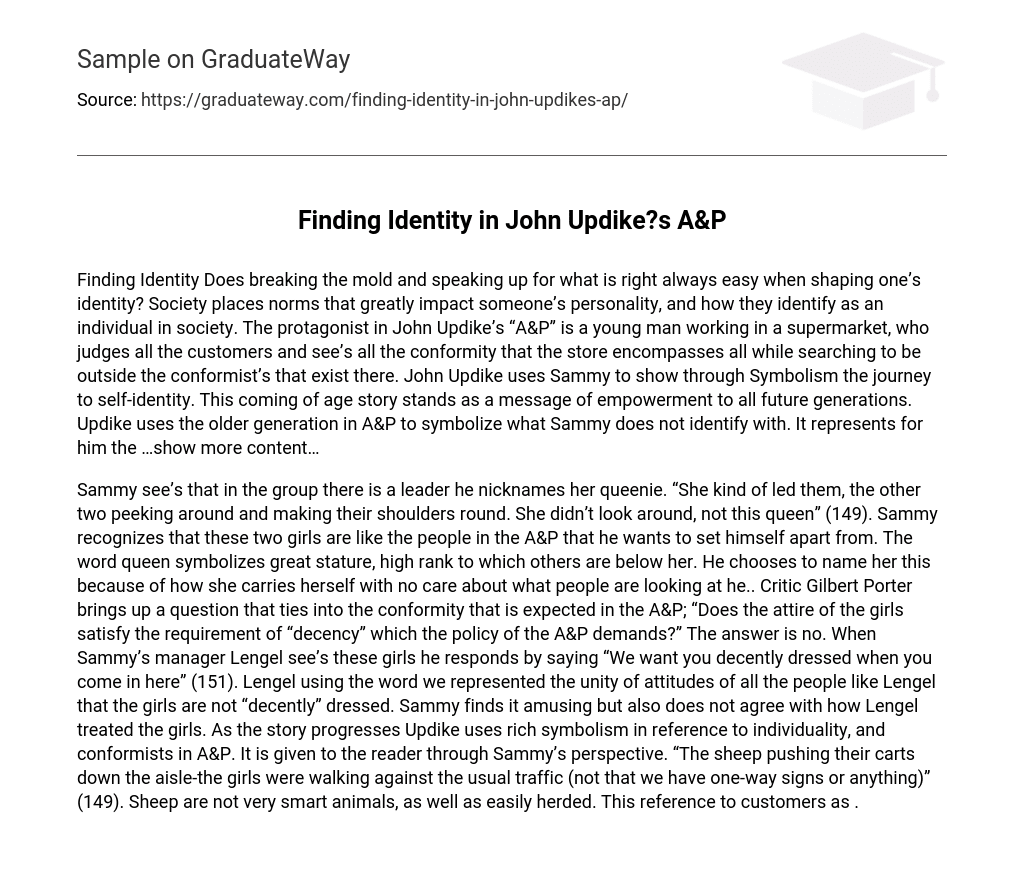The task of shaping one’s identity and standing up for what is right can be challenging. Society’s norms strongly influence self-perception and perception of others. In John Updike’s “A&P”, the main character, Sammy, works in a supermarket where he judges customers while yearning to break free from conformity. Through symbolism, Updike portrays Sammy’s journey towards self-identity. This story empowers future generations by conveying a significant message. The older generation in A&P, depicted by Updike, is something Sammy does not relate to, emphasizing his search for individuality.
Sammy observes that within the group of girls, there is one who takes charge, whom he playfully nicknames “queenie.” Despite the other two girls peering timidly from behind her, queenie carries herself with confidence and does not seem to care about onlookers. Sammy compares these girls to the people in the A&P store, whom he wants to distance himself from. The term “queen” symbolizes her superior status and how others are below her. Sammy finds her behavior admirable because she disregards people’s judgments.
Critic Gilbert Porter addresses the issue of conformity expected in the A&P store by questioning whether the girls’ attire meets the “decency” requirement imposed by store policy. The answer is no. When Sammy’s manager, Lengel, sees the girls, he admonishes them, saying they need to be dressed more appropriately. By using the word “we,” Lengel implies that he represents the collective attitude of others, including himself, who believe the girls are not dressed adequately. While Sammy finds Lengel’s reaction amusing, he also disagrees with how Lengel treats the girls.
Throughout the story, Updike employs rich symbolism to convey themes of individuality and conformity in the A&P. These themes are presented through Sammy’s viewpoint. For instance, when Sammy mentions “the sheep pushing their carts down the aisle,” he is comparing customers to unsophisticated animals that are easily herded.





